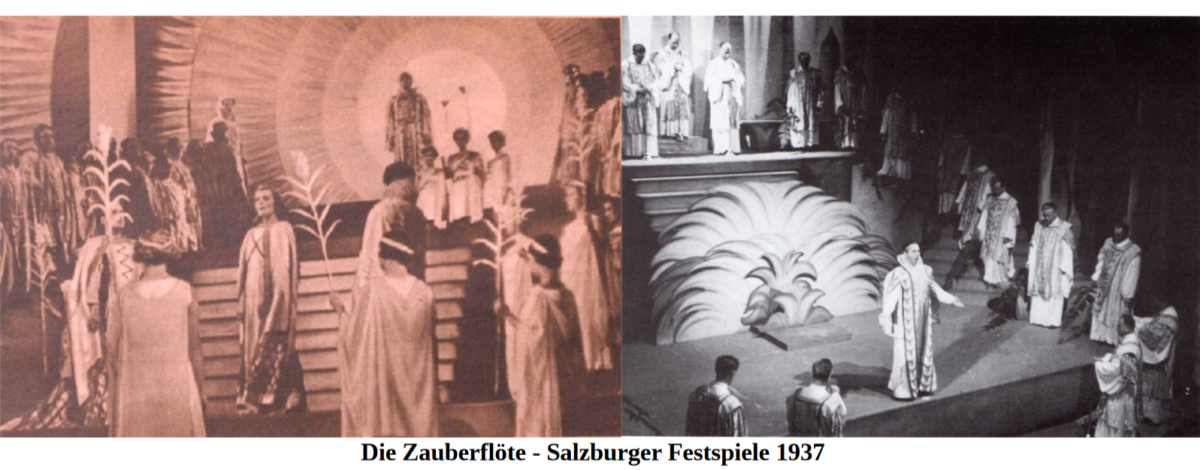
Kipnis – Mozart Verdi Wagner 1916-1937
Alexander Kipnis: Airs d’Opéra /Opera Arias
Source 33t/LP: Pearl GEMM 277/8

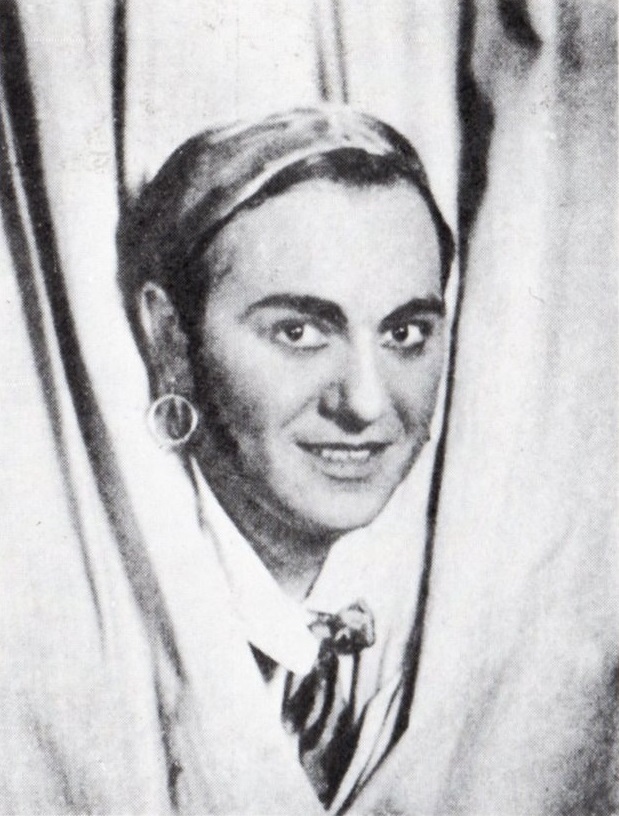
Le Nozze di Figaro: Kipnis (Figaro)
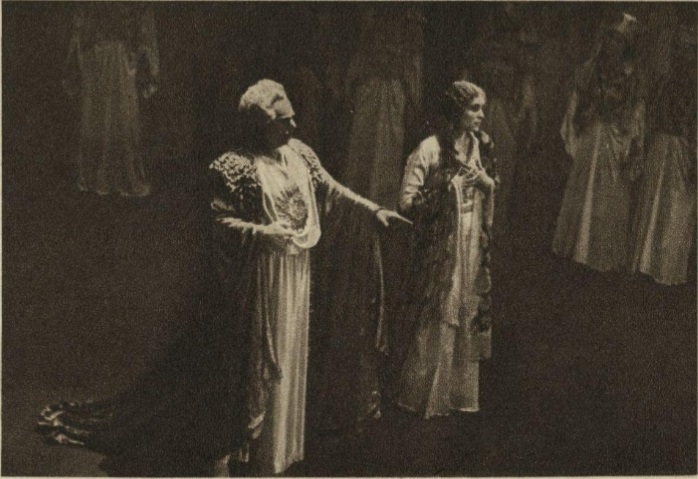
Die Zauberflöte: Kipnis (Sarastro) 1937: Salzburger Festspiele (avec/with Jarmila Novotna)
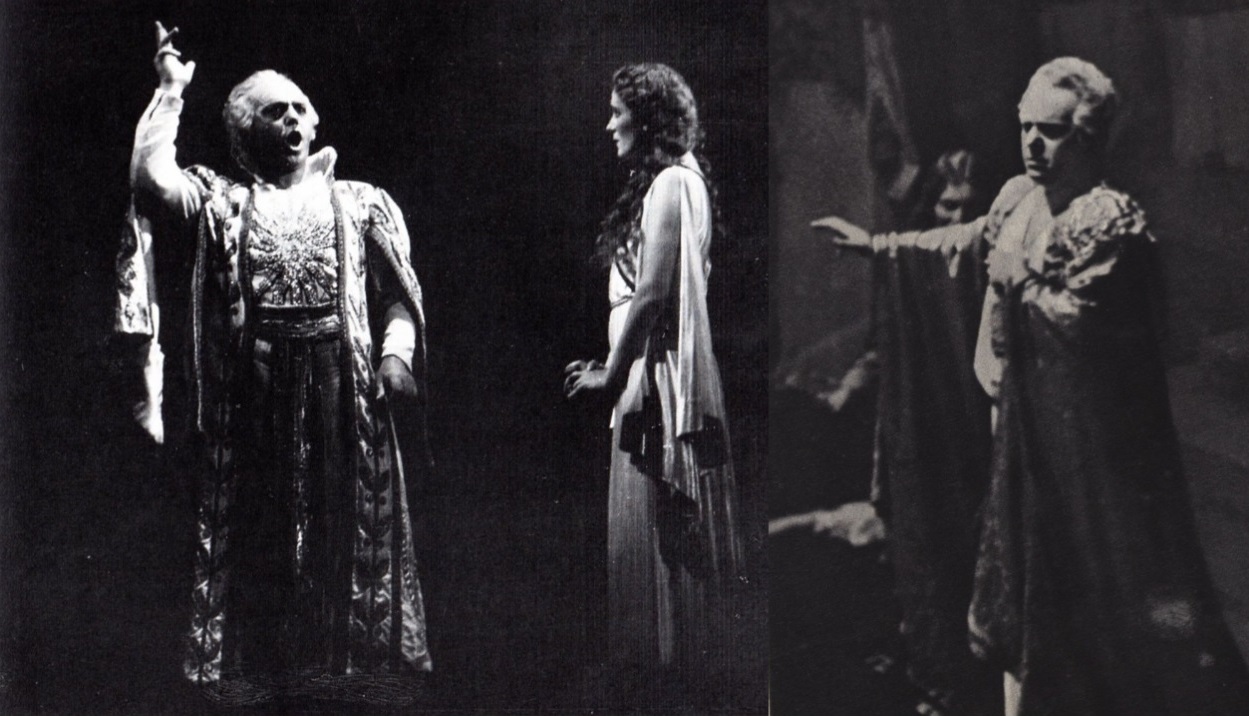
Die Zauberflöte: Kipnis (Sarastro) 1937: Salzburger Festspiele (avec/with Jarmila Novotna) – Wiener Staatsoper
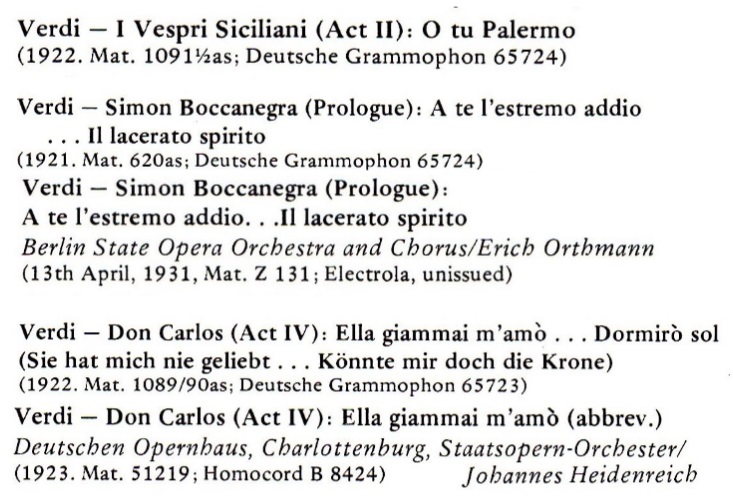
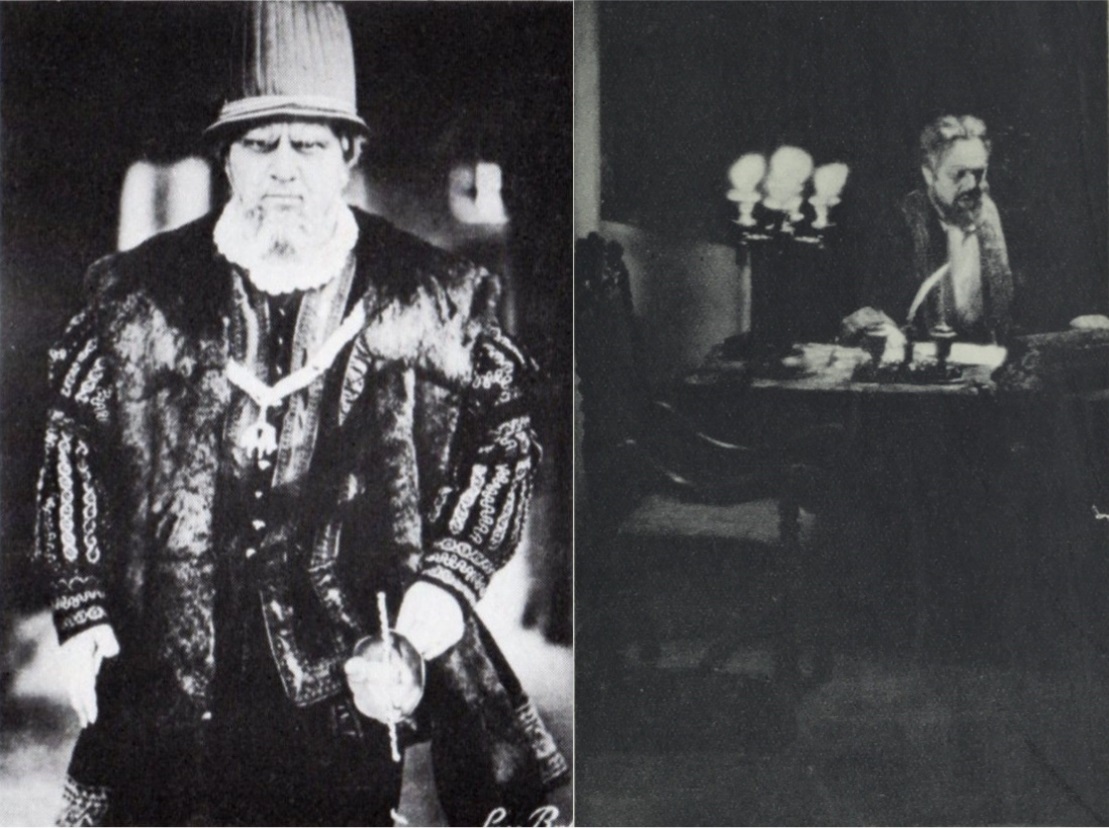
Don Carlos: Kipnis (Philipp II): Berlin (1931) – Wiener Staatsoper (1937)

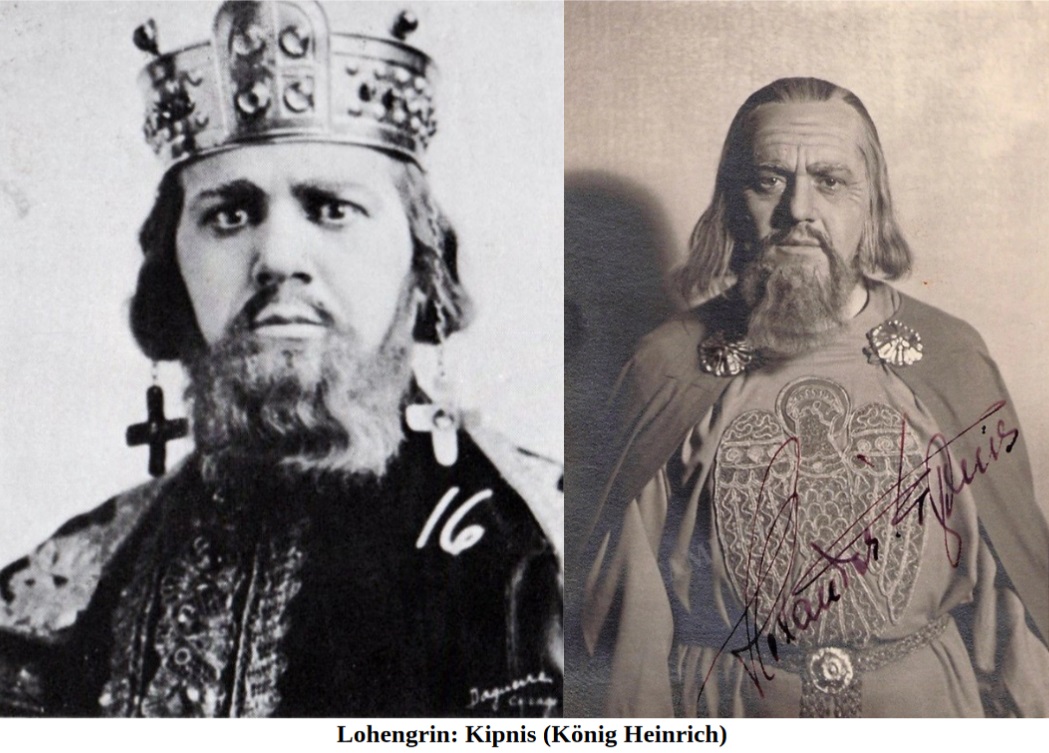
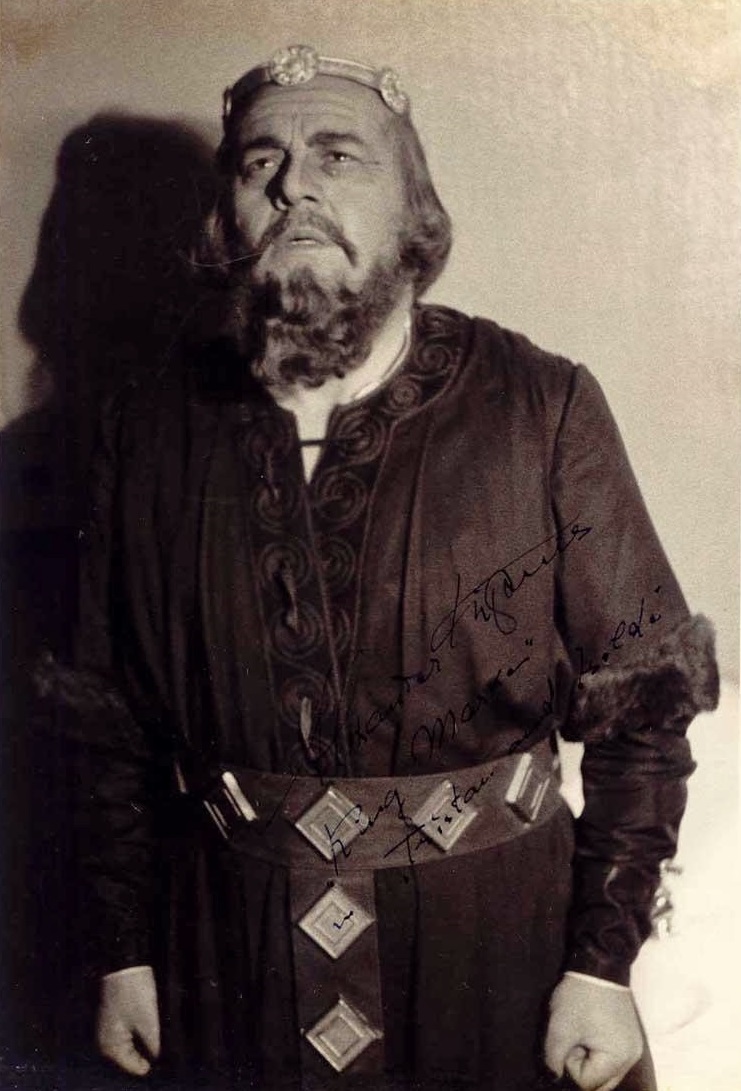
Tristan und Isolde: Kipnis (König Marke)
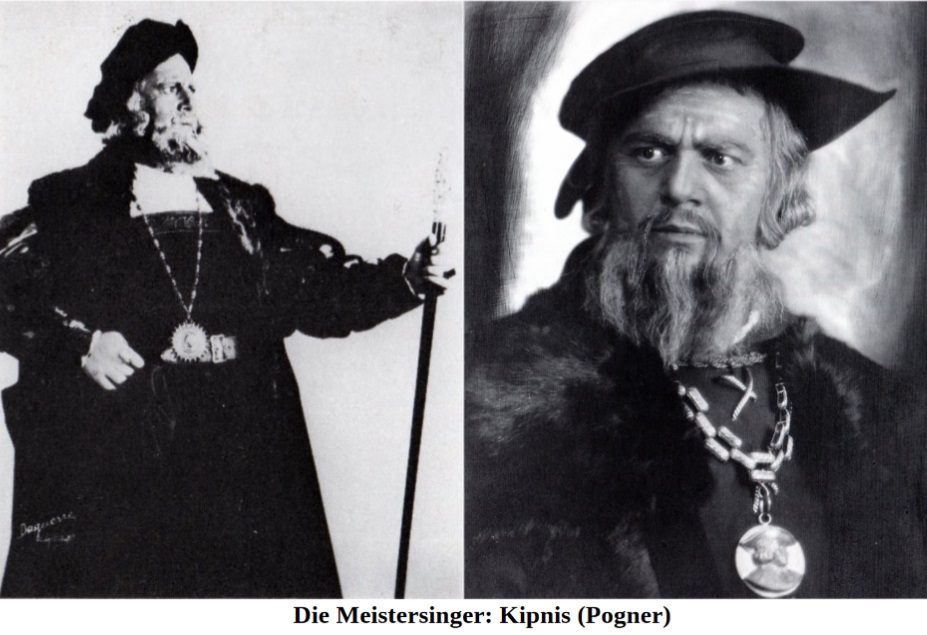
En 1984, la firme Pearl a publié un Album de deux disques 33 tours (GEMM 277/8) consacré à Alexander Kipnis (1891-1978). Le producteur était le fils du chanteur, le claveciniste Igor Kipnis, et il a fait appel aux services de la ‘Yale Collection of Historical Sound Recordings’. La sélection d’enregistrements effectués entre 1916 (au moment où Kipnis avait été engagé par l’opéra de Hambourg), et 1937 (juste avant ses dernières apparitions en Autriche), nous montre d’une part, qu’en 1916, la voix possédait déjà l’essentiel de ses qualités, et d’autre part, qu’elle a toujours été extrêmement phonogénique, au point que même les enregistrements les plus anciens restituent son timbre et ses nuances d’interprétation. Il faut dire que le soin apporté aux reports y a certainement sa part.
La présente sélection d’airs d’opéras montre tout d’abord Kipnis dans trois rôles de Mozart qu’il chante en allemand, à savoir Bartolo avec l’air ‘la Vendetta’, Figaro avec l’air ‘Aprite un po’, et enfin Sarastro, dont les deux airs sont donnés dans l’enregistrement public du Festival de Salzburg 1937 sous la direction de Toscanini. L’air ‘In diesen heil’gen Hallen’ bénéficie également d’une version enregistrée aux États-Unis en 1929 sous la direction de Robert Hood Bowers. Ce ‘doublon’, au tempo plus modéré, permet de mieux rendre compte de l’interprétation de Kipnis qu’avec le tempo rapide choisi par Toscanini.
De Verdi, Kipnis chante dans la langue originale l’air de Procida de ‘I Vespri Siciliani’, ainsi que deux versions de l’air de Fiesco ‘Il lacerato spirito’ de ‘Simon Boccanegra’(1921 et 1931), alors que pour l’air de Philippe II ‘Ella giammai m’amo’ de Don Carlos, la première de 1922, sur deux faces de 78 tours est en allemand, et la deuxième, réalisée l’année suivante, est abrégée et dans un tempo un peu trop rapide, mais est cette fois dans la langue originale.
Le programme Wagner débute par l’air du roi Heinrich ‘Gott gruss’ Euch, liebe Männer von Brabant‘ de Lohengrin, rôle que Kipnis chanta 85 fois de 1915 à 1936, avec ensuite l’air du Roi Marke ‘Tatest du’s wirklich’ de Tristan und Isolde‘ (1916), rôle qu’il a chanté pour la première fois en 1917 à l’Opéra de Wiesbaden, et qui l’a accompagné tout le long de sa carrière. Deux airs des Meistersinger ‘Das schöne Fest, Johannistag’ (Pogner) et ‘Verachtet mir die Meister nicht’ (Sachs) font suite et pour conclure nous avons les Adieux de Wotan ‘Leb’ wohl, du kühnes…’. Les deux derniers airs bénéficient de la direction de Leo Blech, alors Generalmusikdirektor (GMD) du Berliner Staatsoper.
____________
In 1984, Pearl released a two-disc LP album (GEMM 277/8) devoted to Alexander Kipnis (1891-1978). The producer was the singer’s son, harpsichordist Igor Kipnis, and he called on the services of the Yale Collection of Historical Sound Recordings. The selection of recordings made between 1916 (when Kipnis was engaged by the Hamburg Opera) and 1937 (just before his last appearances in Austria) shows us that, in 1916, the voice already possessed most of its qualities, and that it has always been extremely phonogenic, to the extent that even the oldest recordings reproduce its timbre and the nuances of the interpretation. It has to be said that the care taken with the transfers has certainly played its part.
The present selection of opera arias first shows Kipnis in three Mozart roles that he sings in German, namely Bartolo with the aria ‘La Vendetta’, Figaro with the aria ‘Aprite un po’, and finally Sarastro, both arias of which are given in the public recording of the 1937 Salzburg Festival conducted by Toscanini. The aria ‘In diesen heil’gen Hallen’ was also recorded in the United States in 1929 under Robert Hood Bowers. This ‘duplicate’, at a more moderate tempo, gives a better account of Kipnis’s interpretation than the one with the fast tempo chosen by Toscanini.
Kipnis sings Verdi’s Procida aria from ‘I Vespri Siciliani’ in the original language, as well as two versions of Fiesco’s aria ‘Il lacerato spirito’ from ‘Simon Boccanegra’ (1921 and 1931). In the case of Philip II’s aria ‘Ella giammai m’amo’ from Don Carlos, the first, from 1922, on two 78-rpm sides is in German, and the second, made the following year, is abridged and with a rather too fast tempo, but this time in the original language.
The Wagner programme opens with König Heinrich’s aria ‘Gott gruss’ Euch, liebe Männer von Brabant’ from Lohengrin, a role that Kipnis sang 85 times between 1915 and 1936, followed by King Marke’s aria ‘Tatest du’s wirklich’ from Tristan und Isolde’ (1916), a role he sang for the first time in 1917 at the Wiesbaden Opera House and that accompanied him throughout his career. Two arias from the Meistersinger ‘Das schöne Fest, Johannistag’ (Pogner) and ‘Verachtet mir die Meister nicht’ (Sachs) follow and to conclude we have Wotan’s Farewell ‘Leb’ wohl, du kühnes…’. Worth mentioning is that the last two arias are conducted by Leo Blech, then Generalmusikdirektor (GMD) of the Berliner Staatsoper.
Les liens de téléchargement sont dans le premier commentaire. The download links are in the first comment


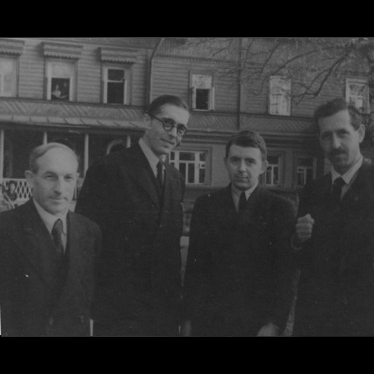
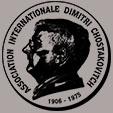
2 réponses sur « Kipnis – Mozart Verdi Wagner 1916-1937 »
HD / Hi-Res (24 bits/88 KHz):
https://e.pcloud.link/publink/show?code=kZtK39ZlgltQev7by5i58w69SzQhhYKVNn7
Format CD / CD Quality (16 bits/44 KHz):
https://e.pcloud.link/publink/show?code=kZEK39ZdLkP7dxaiT8GevOKQx2GtyXI3QGX
Thank you for sharing these recordings by a great singer.